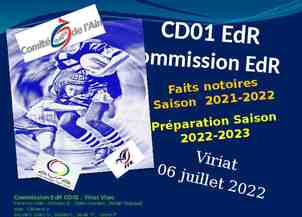Best Practices in Community Engagement 2019 NCDA Winter Conference
9 Slides2.29 MB
Best Practices in Community Engagement 2019 NCDA Winter Conference Washington DC January 22-25th
Goals 1. Continuous CD process. 2. Partner with nontraditional sources/groups. 3. Engage people with different abilities! This Photo by Unknown Author is licensed under CC BY-SA Photo of community members around a circular table working together.
Continuous CE Calendar your opportunities for CE year-around. Difference between community consultation and public hearing. Beg, borrow, cite and give credit if you steal. It doesn’t have to be you (or government). Go to wherever the opportunities are; leverage resources you don’t have.
Target: broader community City Scoop – summer festivals with invitation to share ice cream and City programs and policies initiatives Invited to participate in the Area Agency on Aging and Seattle/King County Housing Development Consortium’s Senior Housing Needs forum Mayor's holds "telephone town hall" for public input on housing affordability, growth management and density planning, HALA recommendations; ATT conference line for up to 200 callers. Socrata (private technology software developer focused on "open data“) innovations think tank; University of Washington research on “microsegregation” by race in Seattle neighborhoods
Target: protected classes and constituents Seattle Housing Authority public housing residents; multiple outreach events and resident council discussions in each housing community Northwest Universal Design Council will “Walk-, Stroll- & Roll-Ability: Designing a Pedestrian Network for All”. Invitation to present on equity issues for people with physical impairments as part of prioritizing City-wide infrastructure improvements (with Dept. of Transportation, Office of Long Range Planning, Office of Housing) Race and Social Justice committees throughout City Departments; link to client advisory groups Seattle Office of Civil Rights community survey; periodic assessment of experience of people in community experiencing discrimination in many forms
Target: stakeholders/regional partners Citizens advisory committees; planning sessions across the City as part of the Housing Affordability and Livability Agenda (HALA) for over two years; led to adoption of inclusionary zoning Ordinance Formal and informal neighborhoods meetings as part of the update to the City’s Comprehensive Growth Management Plan HUD sponsored Region X Forum focusing on the Assessment of Fair Housing and impact of regional issues driving housing affordability; presentations and peer to peer consultation
Non-traditional partnerships Gates Foundation – research on community involvement in schools initiatives Goodwill co-sponsored public benefits fair, minority community outreach program students and civil rights education presentation (including fair housing) Area Agencies on Aging Seattle Planning Commission and architects roundtable Neighborhood Council advocacy groups Northwest Justice Project University of Washington – Evans School of Public Policy
Engage People with Different Abilities First do no harm have you thought about the barriers? Ask the experts first. Inventory your local resources. Just how many people are we talking about? Where and how do you hold opportunities for engagement? Preparation of materials and use of accessible mediums. Notice this presentation style? How can digital tools (Skype, online forums) help?
Target: People with Different Abilities City Commission for People with Different Abilities working on Comprehensive Growth Management Plan and links to Assessment of Fair Housing and ConPlan. Joint training on ADA compliance with City and advocacy groups like Lighthouse for the Blind, Deaf and Hearing Impairment groups and disAbilities Rights Washington legal advocates. Northwest Universal Design Council, U.S Access Board, and City Commission public meeting on infrastructure and architectural design that is accessible for all. Seattle Library – consultation on production of Braille summary of ConPlan














